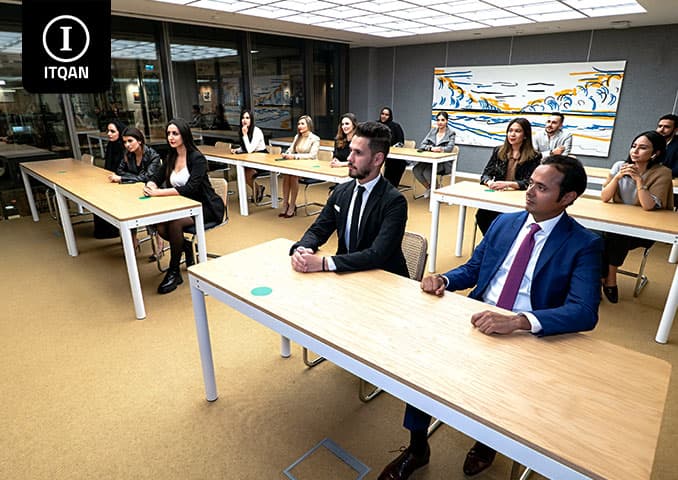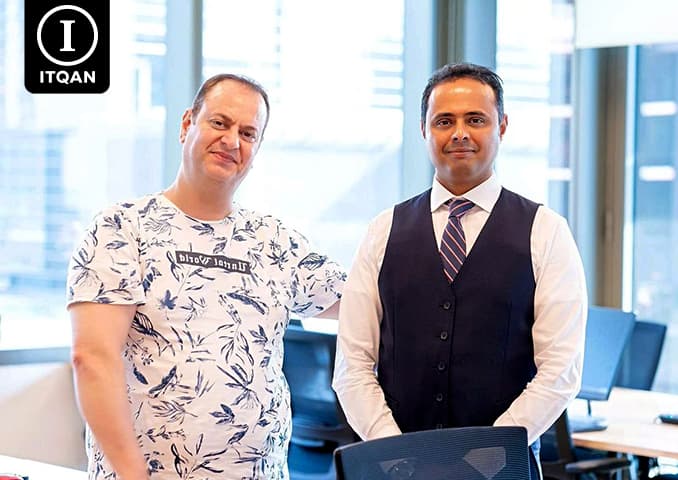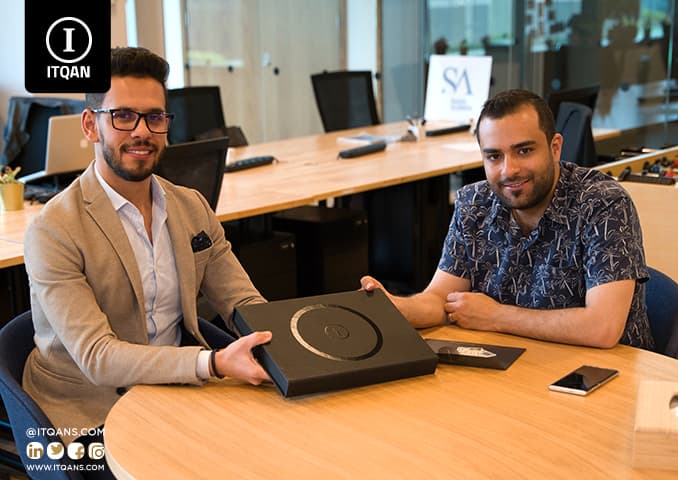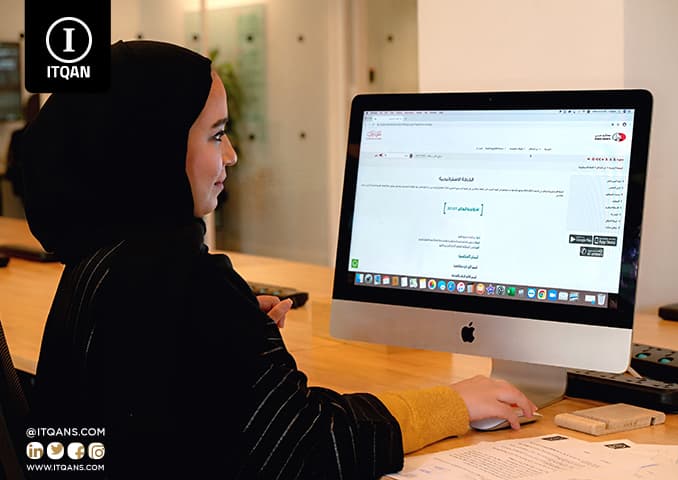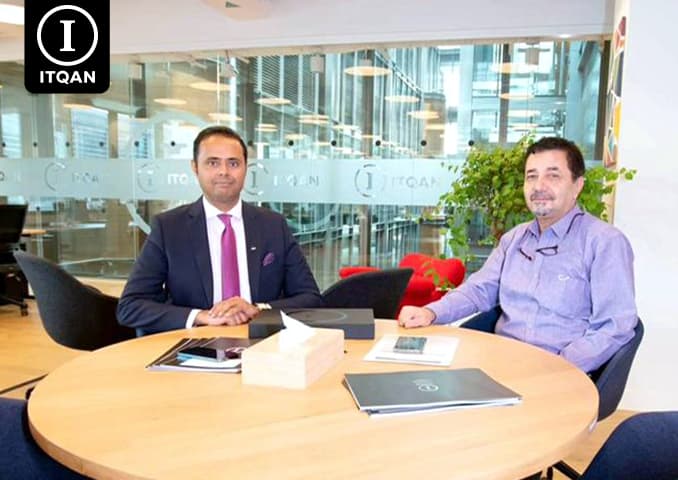In the world of international trade, import and export, the customs representative card plays a vital role in facilitating cross-border commercial movement. The customs representative card is an essential document that gives accredited individuals the official ability to represent companies, importers and exporters before customs authorities. This card is not just an identification document, but rather a symbol of trust and credibility in companies’ dealings with government agencies.
The advantages of the customs representative card are numerous for companies, as it enables its holders to deal directly with customs administrations to speed up customs clearance procedures and ensure that shipments are not delayed. In addition, this card contributes to simplifying logistical operations by providing direct and effective communication channels with the competent authorities, which reduces the risks associated with customs procedures and enhances the efficiency of commercial operations.
The process of obtaining a customs representative card requires completing a set of procedures and requirements, including submitting the necessary documents, undergoing training, and meeting certain standards determined by the customs authorities. Customs representatives must also maintain a high level of professionalism and adhere to customs laws and regulations to ensure the best service is provided to customers.
In general, the customs representative card is an essential tool that supports the international trade process and ensures smooth customs procedures. It contributes to enhancing the effectiveness of customs work and accelerating the movement of goods across borders, making it a vital element in the global trade system.

جدول المحتوى
ToggleBasic steps for issuing a customs representative card
Issuing a customs representative card requires the completion of a number of basic steps to ensure compliance with legal and procedural requirements. Here are the basic steps to obtain a customs representative card:
- Determine the responsible party: Go to the local customs authority or customs administration in the country from which you wish to obtain the customs representative card. In the UAE, you can contact the General Administration of Customs or the Federal Customs Authority.
- Submitting an application to obtain a card: Submit your application to obtain a customs representative card to the competent customs authority, which may be available via a website or in person at the authority’s offices.
- Conduct a background check: In some cases, a security or background check may be required to ensure that there are no legal or security issues.
- Pay the required fees: Pay the fees related to issuing the customs representative card. Make sure you know the required amount and the approved payment method.
- Completion of training (if necessary): It may be necessary to complete a training course on customs laws and customs work procedures, based on the requirements of the customs authority.
- Receiving the card: After reviewing and approving the application, the customs representative card will be issued. You can receive it from the customs office or by mail, according to established procedures.
- Ensure periodic updates: Make sure to follow up on renewing the card and keep up with any updates or changes in customs regulations to ensure the continued validity of the card.
Documents required to issue a customs representative card
To issue a customs representative card, you will need to submit a set of basic documents to the authority responsible for customs affairs. Documentation may vary slightly by country or regulator, but in most cases, required documentation includes:
- Copy of Passport: Must be valid and have a clear copy of the main pages.
- A copy of the national ID card: to verify personal identity.
- A letter from the company: It includes an official request to obtain a customs representative card, and it must be certified by the company where the representative works.
- Employment contract or letter of appointment: A document proving the relationship between the representative and the company. It could be an employment contract or an official letter of appointment from the company.
- Customs representative card application form: You must fill out the application form provided by the customs authority. The form may be available online or obtained from customs offices.
- Personal photo: A recent personal photo, usually with a white background, is usually required.
- Proof of Residence: In some states, a document proving your current residential address may be required, such as a utility bill or lease agreement.
- Training certificate (if necessary): Sometimes, you may need to provide a training certificate or educational course in the customs field, depending on the requirements of the concerned authority.
- Proof of payment of fees: Submit a document proving payment of the fees required to obtain the card.
How to renew the customs representative card
Renewing the customs representative card requires following specific steps to ensure that the card remains valid and that legal requirements are met. Here are the basic steps to renew the customs representative card:
- Verifying the validity of the card: Check the expiration date of the current customs representative card to ensure it is renewed before it expires.
- Submitting a renewal application: Submit the application with all required documents to the relevant customs authority. The application can be submitted online through the customs electronic portal or in person at customs offices.
- Conduct a background check (if necessary): In some cases, a security or background check may be required to ensure that there are no legal issues.
- Payment of fees: Pay the prescribed fees to renew the customs representative card. Make sure you know the amount and the approved payment method.
- Receiving the new card: After the application is processed and approved, the new customs representative card will be issued. You can receive it from the customs office or via email, according to established procedures.
- Updating company information (if necessary): If there are any changes in company or representative information, make sure it is updated in the customs database.
Fees for issuing a customs representative card
The fees for issuing a customs representative card may vary depending on the country and the customs authority concerned. In the United Arab Emirates, for example, fees may vary depending on the emirate and the type of service. In general, fees include:
- Card issuance fees: This includes the cost of issuing a new customs representative card, which is a fixed fee paid when submitting the application.
- Card Renewal Fee: If you are renewing a customs representative card, there may be additional fees associated with the renewal.
- Application Fee: There may be additional fees to apply for or renew the card.
- Other fees: In some cases, there may be additional fees related to certain actions, such as modifications or updates to data.
Investing in Dubai
Investing in Dubai is one of the exciting and profitable options in the Middle East. Dubai is one of the most prominent investment destinations in the world, thanks to its modern infrastructure, supportive business environment, and diverse opportunities in various sectors.
Dubai has a strong reputation as a financial and business centre, making it an attractive destination for investors. Dubai provides multiple advantages, including free zones that provide tax incentives and facilities in the company registration process, as well as advanced infrastructure such as ports and airports, which contribute to facilitating trade movement.
Investment opportunities in Dubai are diverse, starting from the real estate sector, through industry and financial services, to technology and e-commerce. There is also a great interest from the government in supporting innovation and entrepreneurship, which enhances the chances of success of new projects.
Important things to consider when investing in Dubai are to understand local regulations and laws, and ensure compliance with licensing requirements and legal procedures. Specialized consulting companies such as Itqan can help facilitate this process and provide appropriate guidance to new investors.
Investment opportunities in Dubai
Investment opportunities in Dubai are diverse and comprehensive, making it an attractive destination for investors from all over the world. Here are some of the most prominent areas and investment opportunities in Dubai:
- Real estate sector: The real estate sector in Dubai is considered one of the most attractive areas for investments. With major projects such as Burj Khalifa and new tourist destinations, Dubai continues to attract investors in real estate development, whether in residences or commercial facilities.
- E-commerce and technology: With the rapid growth in technology and innovation, Dubai is an important center for investing in startups in the field of e-commerce and technology. Technology cities such as “Dubai Smart City” and “Dubai International Financial Center” contribute to enhancing this field.
- Hospitality and Tourism: Dubai is a world-class tourist destination with luxurious facilities and diverse attractions. Investing in the hospitality, hotels and tourism facilities sector represents a great opportunity given the continuous growth in visitor numbers.
- Financial and banking sector: Dubai is a global financial center, hosting many international banks and financial institutions. Investing in financial services, such as banking and financial consulting, is a good opportunity.
- Industry and Trade: Free zones in Dubai, such as JAFZA, provide great opportunities for investment in manufacturing and trade. Businesses can benefit from tax facilities and advanced infrastructure.
- Health care and education: With the increasing demand for health and educational services, there are great opportunities to invest in establishing hospitals, schools and universities.
- Renewable energy: Dubai invests heavily in renewable energy projects, such as the “Mohammed bin Rashid Al Maktoum Solar Park” project, which provides opportunities for investors in this field.
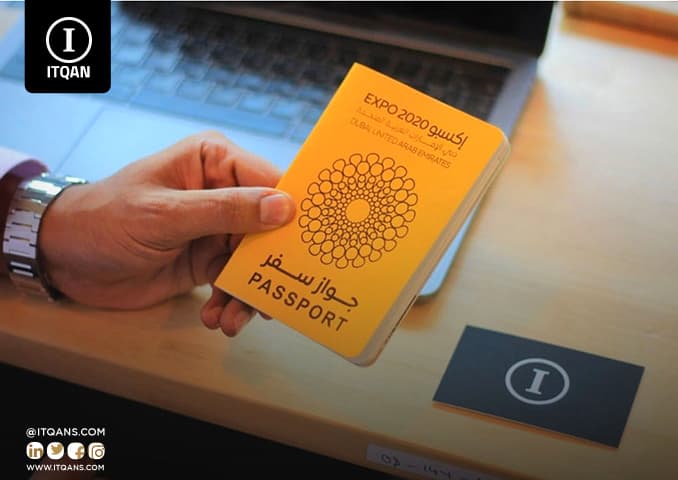
Advantages of investing in Dubai
Investing in Dubai comes with a host of advantages that make it an attractive destination for investors. Here are some of the most prominent advantages of investing in Dubai:
- Supportive business environment: Dubai provides a comfortable and supportive business environment for investors, including simplified company registration procedures, facilities for obtaining licenses, and policies that encourage economic growth.
- Advanced infrastructure: Dubai is characterized by a modern infrastructure that includes an advanced road network, world-class ports, and advanced airports, which facilitates trade and transportation.
- Low Taxes: Dubai offers attractive tax benefits, such as no personal income taxes, and low corporate tax in free zones. This makes it an attractive environment for business investments.
- Political and economic stability: Dubai enjoys political and economic stability, which provides a safe environment for investment and trade.
- Strategic location: Dubai is located in a strategic location between the East and West of the world, making it a major connection point for trade between continents.
- Developed financial markets: Dubai includes advanced financial markets, including the Dubai Stock Exchange, which provides opportunities to invest in stocks and securities.
- Facilitated regulatory procedures: Dubai provides regulatory facilities to attract investors, including flexibility in investment laws and company establishment procedures.
- Multiculturalism: Dubai is a multicultural city, allowing investors to interact with a variety of markets and business opportunities.
- Innovation Opportunities: Dubai encourages innovation and technology, and provides significant support to startups and technology projects through business incubators and technology centers.
- Quality of life: Dubai offers a high level of quality of life, including advanced health and educational facilities, as well as a safe and comfortable living environment.
In conclusion, the customs representative card is considered a vital tool in international trade operations, as it contributes greatly to facilitating customs procedures and ensuring compliance with applicable laws and regulations. This card serves as a bridge between companies and customs departments, which contributes to speeding up customs clearance processes and avoiding delays that may affect the flow of goods.
By obtaining a customs representative card, representatives can achieve high levels of efficiency and accuracy in managing customs transactions, which enhances trust between the parties concerned and reduces potential risks. This card also allows delegates to provide advice and guidance to companies on customs requirements, which contributes to improving trade performance and facilitating the movement of goods across borders.
It should be noted that obtaining a customs representative card requires meeting specific conditions and requirements, including passing the necessary training courses and submitting the required documents. Therefore, it is necessary for the customs representative to be fully aware of the requirements of customs work and familiar with the latest amendments to the relevant laws and regulations.
Ultimately, the customs card is a strategic tool that contributes to enhancing the effectiveness of customs operations and supporting the success of international trade. By adhering to professional standards and constantly updating, customs representatives can play a crucial role in facilitating global trade and ensuring compliance with customs regulations, benefiting the national economy and enhancing business success both domestically and internationally.
The most important frequently asked questions about issuing a customs representative card
Who needs a customs representative card?
It is needed by individuals who represent companies in customs transactions, including import and export of goods and customs clearance procedures.
How long does it take to issue a customs representative card?
The time required may vary depending on the customs authority. It usually ranges from a few days to several weeks, depending on the procedures and reviews required.
What is the validity period of the customs representative card?
The validity period of the card depends on local regulations. They are often valid for one or two years, and must be renewed before they expire.
How can I modify the customs representative card information?
To amend card information, such as changing the name of the representative or company information, an amendment request must be submitted to the customs authority with supporting documents.
Can foreigners obtain a customs representative card?
Yes, in many countries, foreigners can obtain a customs representative card if they represent a company registered and approved to handle customs affairs.
What are the procedures if I lose the customs representative card?
If you lose the card, you must report it to the customs authority immediately and submit a request to issue a replacement card. This process may require submitting a loss or theft report.




